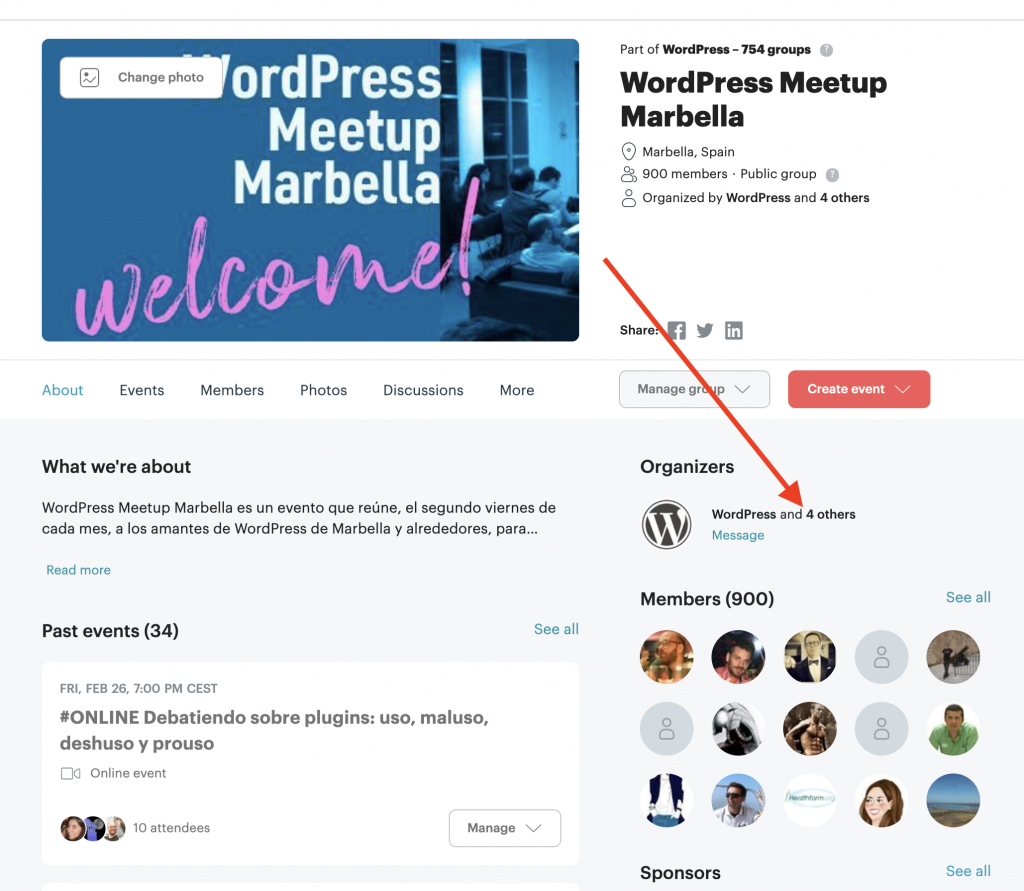Did you know that the almost 800 WordPress Meetup Meetup groups are locally-organized groups that get together for face-to-face events on a regular basis (commonly once a month). Learn more about Meetups in our Meetup Organizer Handbook. groups and (in the pre-pandemic world) a few hundred WordCamps are all organised on a fully voluntary basis?
That means organisers are committing to use their own time to make the events happen. That’s a huge amount of hours contributed to our WordPress Community and project every year!
Quick math: organizing one meetup takes at least 30 minutes of preparation and the meetup itself usually lasts at least one hour. In 2019 there were over 6,000 meetup events across the world. The overly conservative estimation is that meetup organisers (who are community members just like you!) contributed at least 9,000 hours in total for making the meetups Meetup groups are locally-organized groups that get together for face-to-face events on a regular basis (commonly once a month). Learn more about Meetups in our Meetup Organizer Handbook. happen. To put it into context, 9,000 hours equals over a year.
Why doesn’t WordPress Community pay for organizing the events?
Clearly, that is a lot of hours of unpaid work. So why do community members choose to contribute to the project? Why doesn’t WordPress Community Support PBC WordPress Community Support PBC is a subsidiary of WordPress Foundation. It is created specifically to be the financial and legal support for WordCamps, WordPress Meetup groups, and any additional “official” events organized within the WordPress Community Events program. pay any compensation for that time?
One reason is that, while there aren’t financial benefits, there are other benefits to contributing that time. @andreamiddleton wrote an excellent post in 2019 on what organisers get for all their hard work. She outlined four main “gets” as: making an impact, opportunities for personal growth, learning new things, and getting support and protection from the Community team. In the comments, @davelo shared that getting friends and making connections is a very important “get” for organisers as well.
I think that post covers very well why community contributors are choosing to spend their valuable free time towards the WordPress events. Some might still ask, shouldn’t we nonetheless compensate for the time used in some way? There are few main reasons why we don’t do that.
One of the neat things about the WordPress Community team is that anyone can organize a WordPress event. Even if you don’t have any event organizing experience, that’s ok! This is a great place to get that, and community building experience. One of the main requirements of WordPress event organizers, however, is enthusiasm for bringing people together around WordPress. The Community team will help cover expenses related to event organizing, like venue costs or Zoom, but the main motivation of event organizers is community-driven, not financially driven.
Another amazing thing about WordPress is how many people are able to build their livelihood through WordPress. Because of this, the WordPress community wants to make events as accessible to as many people as possible – this community literally changes lives! This is why WordPress meetups are free to attend and WordCamp WordCamps are casual, locally-organized conferences covering everything related to WordPress. They're one of the places where the WordPress community comes together to teach one another what they’ve learned throughout the year and share the joy. Learn more. ticket prices are kept intentionally low. Relying on volunteer work to help create great communities and keeping expenses as low as possible, enables the WordPress open source Open Source denotes software for which the original source code is made freely available and may be redistributed and modified. Open Source **must be** delivered via a licensing model, see GPL. project to have an even greater reach.
Surely someone is getting paid?!
I know, at this point you are probably thinking “I’m quite sure someone is getting paid”. And that’s partially true, but not as simple as someone might think at first. Let me explain.
The community team is very lucky to have sponsored contributors. Some of them are sponsored full time, while most are sponsored to contribute a few hours weekly or monthly. They receive their paycheck from their employers, not from WordPress Community Support PBC (sometimes referred to as “WordCamp Central Website for all WordCamp activities globally. https://central.wordcamp.org includes a list of upcoming and past camp with links to each.”) or the WordPress Foundation The WordPress Foundation is a charitable organization founded by Matt Mullenweg to further the mission of the WordPress open source project: to democratize publishing through Open Source, GPL software. Find more on wordpressfoundation.org.. Companies are donating their talents time as part of the Five for the Future initiative.
The majority of the work of sponsored contributors is supporting our local communities and volunteer organisers to make the best out of their community, doing administrative work to keep things running and money flowing as well as facilitating conversations between volunteer contributors. Sometimes sponsored contributors do help to organise events, from local meetups to flagship WordCamps. To put it in a nutshell, sponsored contributors are supporting the communities when needed and crunching mundane tasks to allow local organisers to focus on benefitting their community the most.
And as always if you have any questions or topics you’d like to see addressed in this space let us know in the comments or by emailing support@wordcamp
Thanks to @angelasjin who helped with this post.
#tuesdaytrainings
